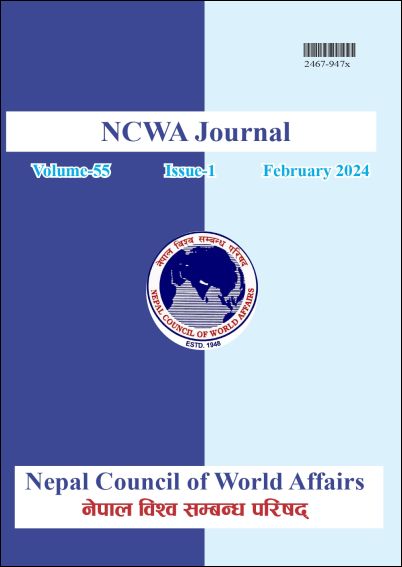Dynamics in International Relations and its Implications for Nepal
DOI:
https://doi.org/10.3126/ncwaj.v55i01.62958Keywords:
sovereign state, international relations, diplomacy, economic assistanceAbstract
It is a well-known fact that international relations has evolved in the past around the interaction between sovereign states. Because of the interconnectedness and complexity of the globalized world, the non-state actors also significantly influence international affairs at present. International organizations such as the United Nations and the World Trade Organization are playing a significant role in addressing global issues. Similarly, multinational companies have significant economic leverage which allows them to exercise soft power and influence state policies. As diplomacy is a major tool of foreign policy and international relations, its effectiveness is always desirable. Through the conduct of effective diplomacy, Nepal can receive adequate amount of development assistance and foreign direct investment to meet the country’s requirements for development. Unfortunately, foreign investors express their concern about the lack of a foreign investment[1]friendly environment. Nepal is also unable to absorb foreign assistance received from the development partners on stipulated time. Its expenditure level, on average, is less than sixty percent since the last decade. Therefore, massive improvement is needed both internally and externally, to improve this situation.




